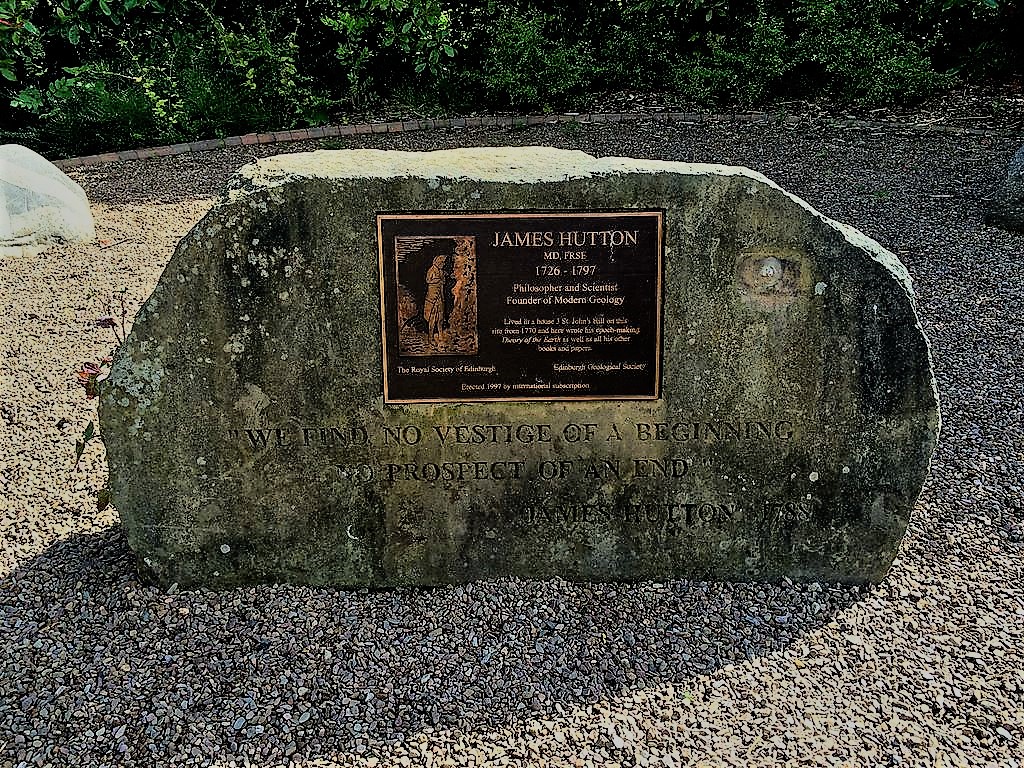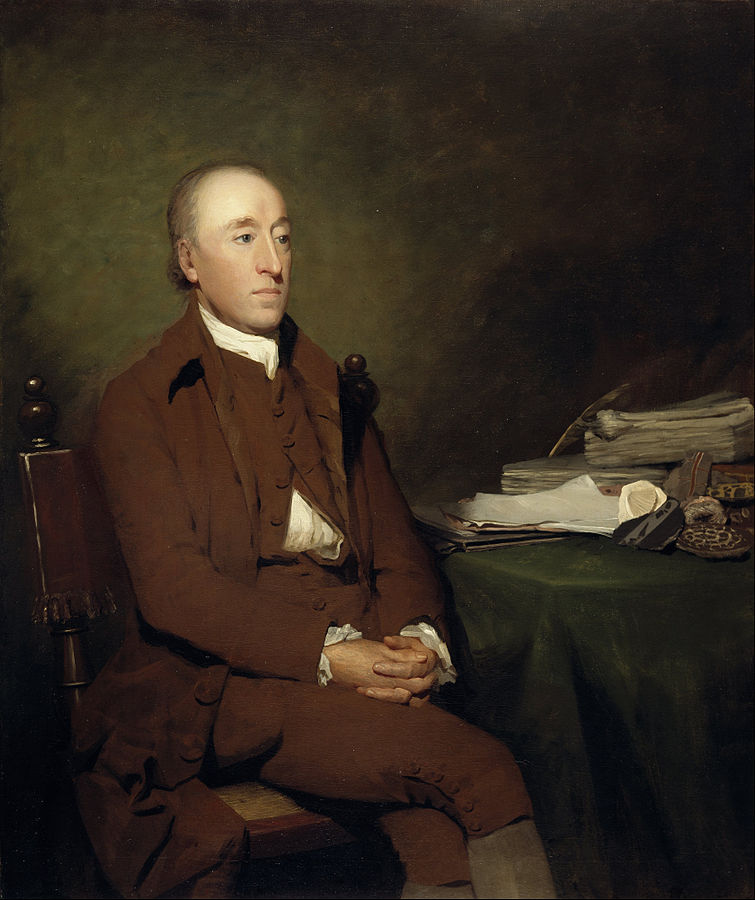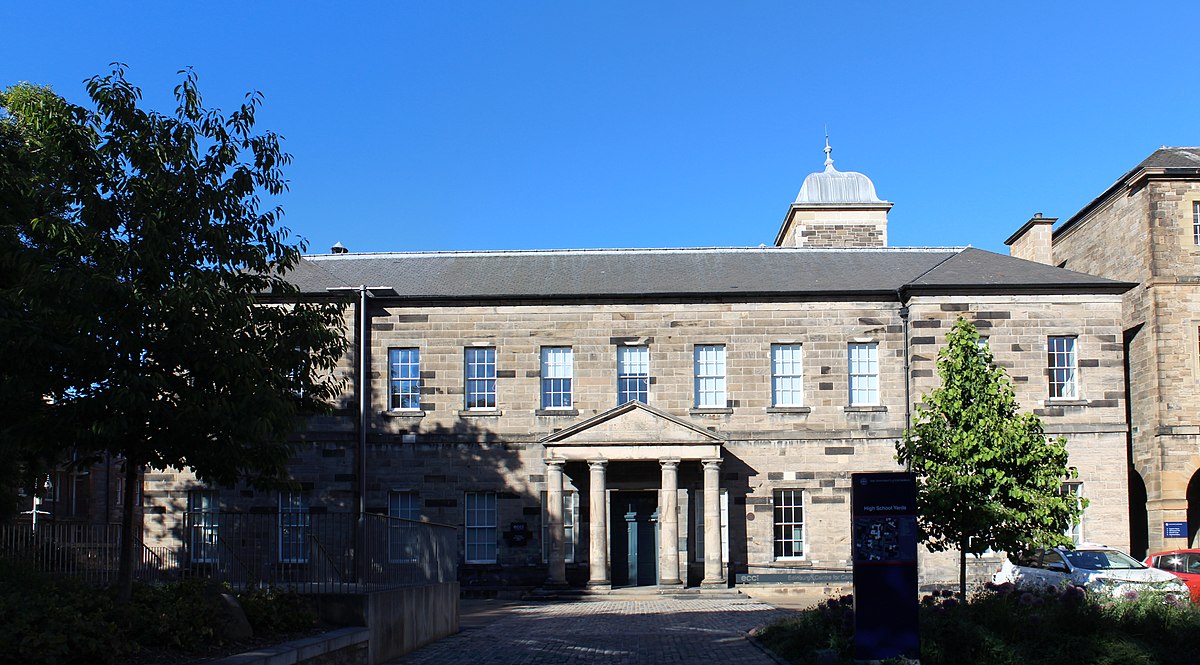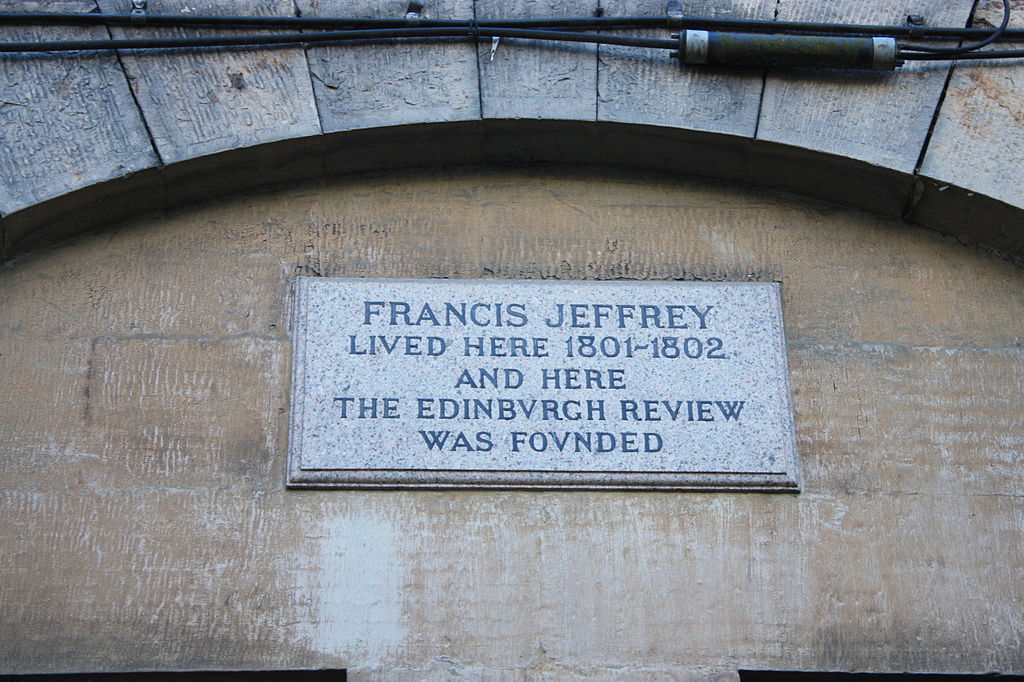
Commemorative stone of James Hutton
Photograph: Nachosan, Wikimedia Commons (BY-SA), digitally enhanced
James Hutton Memorial Garden
This was the conclusion of James Hutton (1726–1797) and his research in geology, as published in 1788 in his Theory of the Earth, essentially stating that the age of the earth was infinite, an opinion which did not sit well with religious thinkers of the time. Hutton's ideas were encapsulated in the concept of "Deep Time" and the theory of uniformitarianism, describing the development of the Earth’s crust over time, and establishing him as the "Father of Modern Geology."

Sir Henry Raeburn (1756-1823), James Hutton, 1726 - 1797. Geologist
Edinburgh, Scottish National Gallery
At least theoretically, Hutton even extrapolated this thinking to living organisms, presaging Darwin’s actual research. In his Investigation of the Principles of Knowledge, he wrote that
"...if an organised body is not in the situation and circumstances best adapted to its sustenance and propagation, then, in conceiving an indefinite variety among the individuals of that species, we must be assured, that, on the one hand, those which depart most from the best adapted constitution, will be the most liable to perish, while, on the other hand, those organised bodies, which most approach to the best constitution for the present circumstances, will be best adapted to continue, in preserving themselves and multiplying the individuals of their race."
The site of James Hutton Memorial Garden, laid out in 2002 coincides exactly with the geologist's house and garden, where he lived from 1770. Like many of his Enlightenment colleagues he had a wide-ranging education, beginning at The Royal High School (see section 10), where he was reputedly most interested in mathematics and chemistry, followed by study of the classics at age 14 at the University of Edinburgh and the eventual attainment of a degree in medicine after study in Paris and Leiden.


